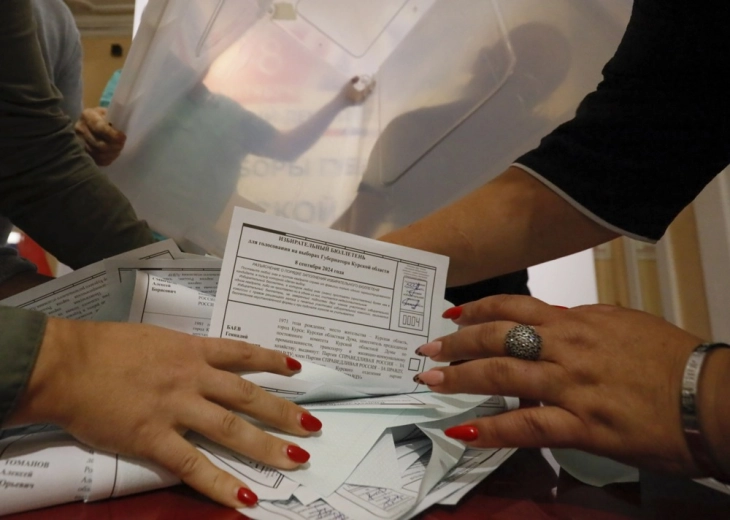Ruling party wins big majorities in Russia's provincial elections
- Candidates from Russia's ruling party have swept the board in the nationwide elections for provincial governors, according to official results published on Monday.

Moscow, 10 September 2024 (dpa/MIA) - Candidates from Russia's ruling party have swept the board in the nationwide elections for provincial governors, according to official results published on Monday.
United Russia's candidates secured large majorities in all 21 contests. The governor of the northern city of St Petersburg, Alexander Beglov, performed the worst, with preliminary results suggesting he has won just under 60% of the vote.
Beglov is considered unpopular due to his mismanagement of St Petersburg's administration. Independent observers complained of a high degree of interference in the city, which is President Vladimir Putin's home town. The official count in St Petersburg was still under way on Monday.
In other regions, United Russia incumbents were said to have won around 80% of the vote, with - for example - Igor Babushkin getting 78.17% in the Astrakhan region, and Vladimir Vladimirov 79.61% in Stavropol.
In the Kursk region, which is partially occupied by Ukrainian troops, the provisional governor Alexander Smirnov's total was 65%. Special polling stations had been set up for around 120,000 refugees from the embattled region.
Voting took place across Russia from Friday to Sunday, and several regional parliaments were also elected. The ballot was seen as a test of the mood among the population for the leadership in Moscow, after two and a half years of war against Ukraine.
More than 57 million people were called upon to cast their votes. A total of 21 regional governors or heads of republics were elected. There were also numerous city and regional parliaments. No real opposition was allowed in the elections.
The central election commission in Moscow and its regional branches reported a higher voter turnout than in previous years. Russia traditionally combines upcoming regional and local elections at the beginning of September.
For example, officials indicated turnout of 42.2% in Kaliningrad in the west, 41.95% for Sakhalin Island in the east and 54% for Sevastopol on the Russian-occupied Crimea peninsula.
Ella Pamfilova, the election director appointed by President Vladimir Putin, claimed that the danger to Russia posed by the invasion of Ukrainian troops in the Kursk region had spurred on voters.
"The people have shown maximum responsibility, bravery and real civic courage," Pamfilova said in Moscow.
But observers such as the electoral rights organization Golos (Voice), which is classified as a foreign agent, pointed out that the state had artificially driven up turnout figures.
Many state employers had pressured their employees to vote, the election observers from Golos wrote in their report.
However, the pressure was less than in the presidential election in March, in which Putin claimed a record 88.5 % of the vote.
Golos criticized the increasing use of voting machines rather than ballot papers, which are difficult to control.
Candidates who were not loyal to the party line were prevented from standing for election.
The state-controlled media had prevented a debate about real problems during the election campaign.
For Russian voters, elections have degenerated into a "fun procedure with online voting, competitions, game pieces and cakes at the polling station," Golos added.
Photo: EPA







